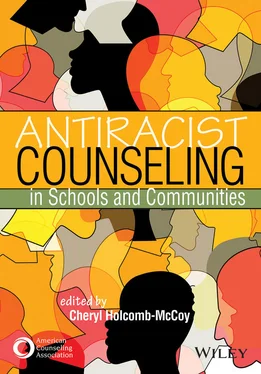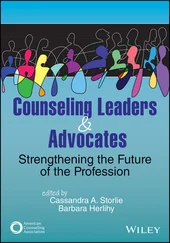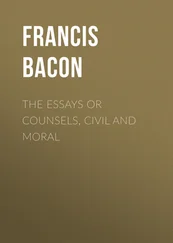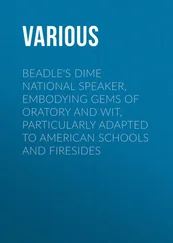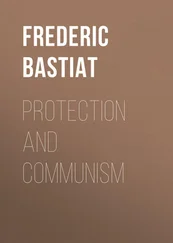In addition, these skills, like the previously mentioned theories, render the experiences of students of color obtuse, not normal, and in need of correcting. If these theories or tools are used by individuals who do not hold a critical standpoint, they can be physically and psychologically dangerous. Most important, students who hold a critical awareness of the system and attempt to advocate for themselves are criminalized, viewed as noncompliant, and labeled “troublemakers.” Viewing Black people as noncompliant aligns with a history deeply rooted in psychology. Black people who dared to seek freedom from bondage or refused to remain quiet were violently punished for questioning their oppression and subordination (Guthrie, 2004).
When facing oneself and others in dismantling systems of oppression, there are many strategies in which one may actively engage to facilitate an ongoing reflective practice to name racism and white supremacy. In addition to using Holcomb-McCoy’s (2004) checklist, these strategies include, but are not limited to, (a) actively engaging in critical dialogues about race (Kohli, 2014; Singh et al., 2010); (b) engaging in self-exploration activities that enhance one’s awareness of one’s worldview and positionality (Singh, 2019); (c) examining what it means to be white (Malott & Paone, 2011); (d) increasing one’s knowledge of the history of oppression; and (e) building genuine working relationships with students, families, and communities (Singh et al., 2010; Washington & Henfield, 2019).
A Political Critical Standpoint
In this section we argue that decolonizing the Western hegemony in the counseling canon requires that counseling professionals acquire a political critical standpoint. Prilleltensky (1994) used the term “political critical standpoint” to refer to a critical awareness (i.e., active, persistent, and careful consideration) of the social, political, and moral assumptions implicit in psychological and counseling theories and practices. A political critical standpoint acknowledges that the counseling canon is not value neutral or immune to the influence of Western ideologies used to justify the existing racial hierarchy. Despite pretensions of being morally, politically, and ethically neutral, counseling, which is heavily influenced by psychology, is fundamentally Eurocentric, both in theory and in practice (Katz, 1985; Sue, 2006; Sue & Sue, 1999; White, 1984). So it should come as no surprise that the counseling canon (i.e., the body of books, narratives, theories, and other texts considered to be the most important and influential in counseling) inherently reflects whiteness and that this reflection acts as the profession’s unnamed norms. Whiteness refers to how white people, their customs, their culture, and their beliefs operate as the standard by which all other racial groups are compared. Thus, any behaviors, values, beliefs, and lifestyles that differ from white American norms are seen as deficient, inferior, and even deviant (Prilleltensky, 1994; Rivera & Torres, 2015; White & Parham, 1990).
The Western hegemony in the counseling canon has served to perpetuate a view that cultural difference is inherently pathological and has also undergirded racist research and counseling practices (Sue et al., 1992). Several writers (Bulhan, 1990; Guthrie, 1970; Katz, 1985; Naidoo, 1996; Prilleltensky, 1994; Sue et al., 1992) have highlighted how psychology and counseling theories and practices tend to support the racist status quo by (a) attributing excessive weight to individual factors in explaining clients’/students’ problems and social behavior while largely ignoring social determinants of mental health, such as racial discrimination and social inequalities; (b) endorsing microlevel counseling interventions for social, political, and economic problems impacting clients/students of color, thereby diverting attention away from macrolevel skills (e.g., advocacy, policy analysis, community organizing) to address large-scale social issues such as anti-Black racism; (c) rejecting the notion that biases and dominant (i.e., white) values are inherent in theories of counseling, career development, and human development and their translation into common practice; and (d) portraying values that benefit the dominant (i.e., white) segments of society as benefiting society as a whole.
Consequently the profession is adversely impacted because (a) knowledge and understanding of people from a range of racial and ethnic backgrounds is tightly restricted; (b) our ability to work effectively in cross-cultural situations is severely hindered; (c) the value and usefulness of the healing practices of Indigenous people is deprecated; (d) clients/students are less informed of how racism precipitates their presenting concerns, which makes them less likely to engage in social action that promotes macrosystemic social change; and (e) counselors are less likely to draw connections between clients’/students’ presenting concerns and the larger context in which they live or to engage in social justice advocacy with and on behalf of clients/students (Bulhan, 1990; Guthrie, 1970; Katz, 1985; Naidoo, 1996; Prilleltensky, 1994; Sue et al., 1992; Williams et al., 2013).
A Political Critical Standpoint Lens to the Counseling Canon: In Practice and Research
Here we detail how developing this critical standpoint represents a critical first step toward the ambitious goal of achieving a decolonized and antiracist approach to counselor pedagogy and praxis (Prilleltensky, 1994). We believe that teaching is a political act (Freire, 1972). Teaching counseling students how to see, name, and challenge racial injustice and sharing knowledge and ideas is inherently political.
Over the arcs of our respective careers, we the authors have all lamented the following: How effective are my interventions in cultivating students’ critical consciousness (i.e., the ability to recognize and analyze systems of anti-Blackness and the commitment to take action against these systems) if those interventions still conform to the dictates inherent to the traditional European counseling canon (Henfield et al., 2017)? For example, to teach theories is to engage in an exercise of promoting and endorsing theories that are supposedly universal when they are in fact a set of language, stories, and theories reflecting the traditions of economically secure, traditionally educated, socially privileged white men and white women. Symbolically, this advances the idea that within the profession there is a body of scholarship that warrants our attention and respect that is juxtaposed against emergent theories from marginalized thinkers that can be engaged only obliquely. The exclusion of Black scholars (and other nondominant perspectives and forms of texts) within the counseling canon communicates to counseling students, in subtle and profound ways, that a decolonial or antiracist perspective is not central to the counseling profession or one’s professional identity (Goodman et al., 2015). The literary counseling canon permeates our profession on many levels and undoubtedly shapes counseling’s professional values. Disrupting the counseling canon and moving toward antiracist teaching requires a willingness to examine the underlying cultural (i.e., white) values and social, political, and moral assumptions that serve as the foundation for counseling (Wrenn, 1962).
Naomi is a Black American assistant professor in a counselor education program in a Mid-Atlantic university. Her counseling students are primarily white, middle-class, heterosexual, and often cisgender women. Naomi desires to equip her students with the critical knowledge and skills necessary to interrogate and transform their beliefs and attitudes about race and develop an antiracist identity as counselors. However, when determining what to assign students to read, she experiences a double consciousness that threatens her efforts to remain congruent with an antiracist positionality. The feeling of twoness often comes when she must choose between teaching (Council for Accreditation of Counseling and Related Educational Programs and state-level) content that will likely appear on standard certification and licensing exams or scholarship that infuses a critical lens. In taking a political critical standpoint, Naomi uses critical race theory as an interpretive lens to help students analyze the underlying cultural (i.e., white) values and social, political, and moral assumptions that serve as the foundation for the counseling canon—including the content knowledge required for certification and licensure. Naomi also integrates Black perspectives into her counseling courses to help students develop a framework that informs antiracist practice. By integrating Black perspectives throughout her courses, Naomi helps students recognize the history and cultures of Black people, value differences and strengths in Black communities, reject white norms in counseling, and adopt a political ideology from which to fight racism.
Читать дальше
